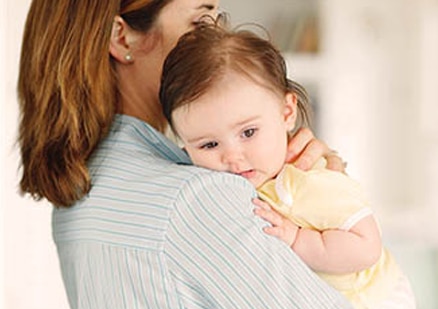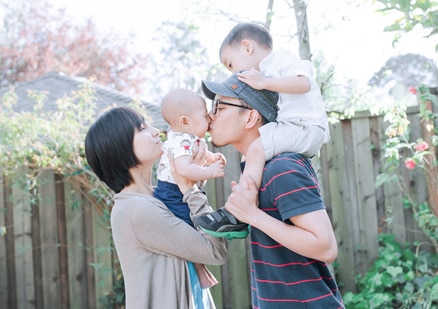Postpartum depression

The changes you go through after having a baby can leave you sad, anxious, afraid, or confused. These feelings are sometimes called the “baby blues,” and they’re very common. In fact, about 8 in 10 new parents experience some form of baby blues — usually during the first 2 weeks after giving birth.*
Postpartum depression is more serious, and can last a year or more if untreated. There’s no single cause for it, but the physical, hormonal, and emotional changes that go along with childbirth all play a role. Just like we did during your pregnancy, we’ll check in with you often to see how you’re feeling. If you’re struggling with depression, we’ll connect you with the care you need.
Postpartum depression and baby blues
Signs and symptoms
Some common symptoms of postpartum depression include:
- Restlessness, irritability, or sadness
- Difficulty sleeping, extreme exhaustion, or both
- Difficulty concentrating, remembering, or making decisions
- Feeling overwhelmed, inadequate, guilty, or worthless
- Excessive anxiety or worry
- Losing interest in activities you used to enjoy
If this sounds like what you’re going through, please call your care team right away. You’re not alone — many parents struggle with postpartum depression, and there are treatment options that have been shown to help. Hearing from other new parents going through the same thing can be incredibly helpful — your care team might be able to connect you with a postpartum depression support group in your area.
Who gets postpartum depression?
About 1 in 7 new parents will experience postpartum depression after having a child.* Symptoms typically begin 2 or 3 weeks after giving birth, but can begin anytime — including after a miscarriage, or even when you stop breastfeeding. Just like other forms of perinatal depression, postpartum depression can affect anyone, regardless of your age, how many children you have, or your education level.
Postpartum depression is more likely if you’ve had:
- A history of depression yourself, or a family history of depression
- Troubled relationships with your partner, family, or friends
- A recent stressful event, such as a divorce or separation, job change, or financial trouble
- A difficult or traumatic delivery experience
- Struggles with breastfeeding
Treatment
Postpartum depression is treated much like other types of depression. Each case is unique, but the most common treatment options are:
- Therapy or counseling
- Medication
- Self-care (plenty of rest, support from others, healthy eating, and exercise)
- A combination of these treatments
*National Institute of Mental Health Postpartum Depression Facts (NIH Publication No. 13-800), accessed April 23, 2021.
Ready to get maternity care?
Find a hospital or care provider near you.


